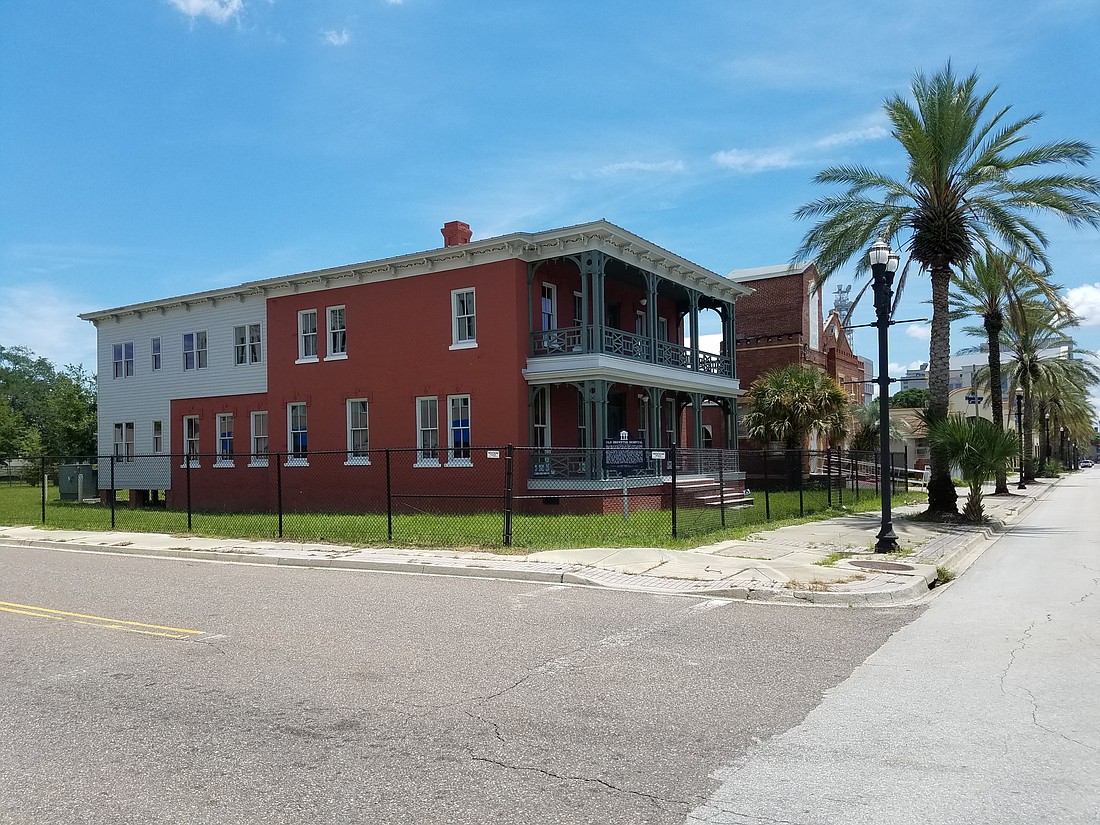
The North Florida Land Trust may reconsider its plan to move into the historic city-owned Brewster Hospital building in LaVilla, citing concerns about how long it will take to occupy it and its condition.
Jim McCarthy, president of the nonprofit trust, said the group is re-evaluating the lease terms with the Downtown Investment Authority and may reconsider the deal altogether.
“We’re not at that stage yet, but I’m concerned we’re getting closer,” McCarthy said.
In July, the DIA approved a tentative lease agreement with the land trust to lease the 5,700-square-foot former hospital at 843 Monroe St., built in the late 1800s.
McCarthy said the process to get the deal finalized has taken longer than he anticipated.
The lease agreement was supposed to be reviewed and approved by board members at the Oct. 31 DIA meeting, but was deferred.
“We’re literally on top of each other in our current space and it’s already affecting our productivity,” he said.
McCarthy said the land trust began considering the possibility of relocating the nonprofit’s offices to the building a year ago, and now timing has become a bigger problem.
“They know we need to get in there as soon as possible,” McCarthy said. “We may have to consider other options.”
He said even if everything goes as planned, he believes it would be at least April before the land trust could relocate, since any deal would need City Council approval.
The agreement likely would go before the council Land Use and Zoning and Finance committees before a full council vote, a process that can take several weeks or months.
Council also has a two-week winter break at the end of December, which would push an approval to 2018.
The building, which has been vacant since the 1960s, also needs interior repairs, something the land trust agreed to do.
According to the lease terms, the land trust agreed to spend between $250,000 and $350,000 on repairs, in lieu of five years of free rent or until the principal and accrued interest resulting from that build-out is paid off. McCarthy said it would take about three to four months to complete the work.
The land trust would then have the option to lease the building for $12.50 per square foot, or roughly $71,250 a year, for two five-year terms. Beyond that, the idea of purchasing the building from the city could be considered.
“I have some concerns about our liability, as far as structural issues with a building that we’re ultimately going to lease,” McCarthy said. “The contract just isn’t as clear as I’d like it to be in that regard.”
McCarthy also said he’s not sold on the city’s insistence that the building is Class A office space.
“It’s not Class A office space now, and it won’t be in five years from now,” he said. “It’s Class B at best.”
DIA staff said Wednesday they do not believe the deal is in jeopardy and that negotiations would continue with the hope that an agreement can soon be finalized.
McCarthy said he has spoken with the DIA about his concerns, but “maybe I should’ve been clearer about what’s causing me heartburn.”
The city has spent $2.3 million to restore the building, which is on the National Register of Historic Places.
It’s tried unsuccessfully to lease the property for several years, including to U.S. Rep. Al Lawson, who wanted to use it as his congressional office.
When the city put out a request for proposals from interested parties, the land trust was the only bidder.
“This fits our mission,” McCarthy said about the building. “We want to preserve these historic structures and we need a stand-alone building.”
The structure was built during the mid- to late-1800s as a private residence. It became Brewster Hospital in 1901 and was Jacksonville’s only hospital for African-Americans until the mid-1960s.
It also was a teaching hospital for nurses. McCarthy said the land trust will have a space dedicated to the Community Nurses Association to display that history if all goes well.
Moving forward, he said a meeting is being set to hopefully work out the rest of the issues with the city, “because it remains our top choice.”
“If it wasn’t affecting our productivity, I wouldn’t complain, but it is,” he said.